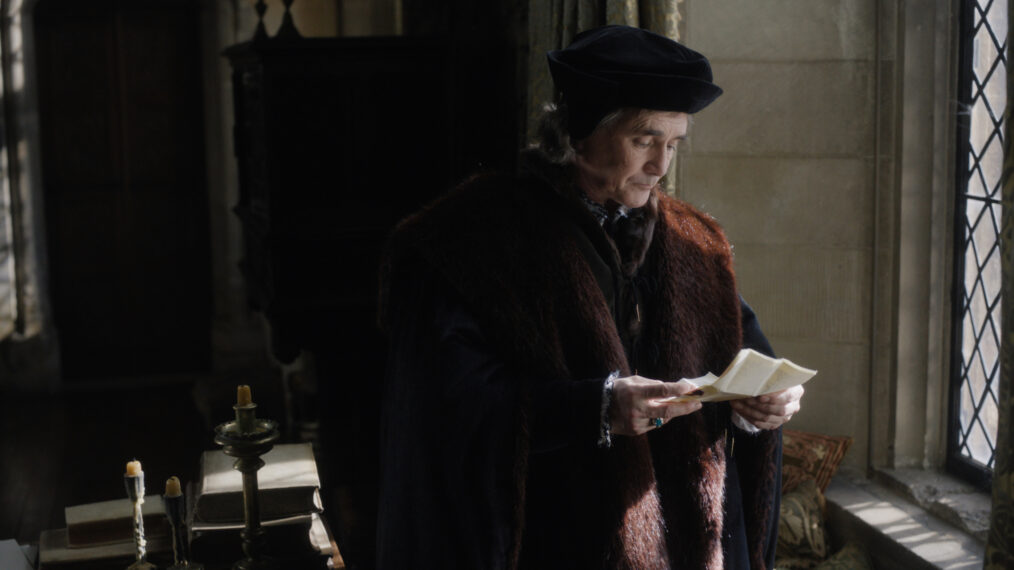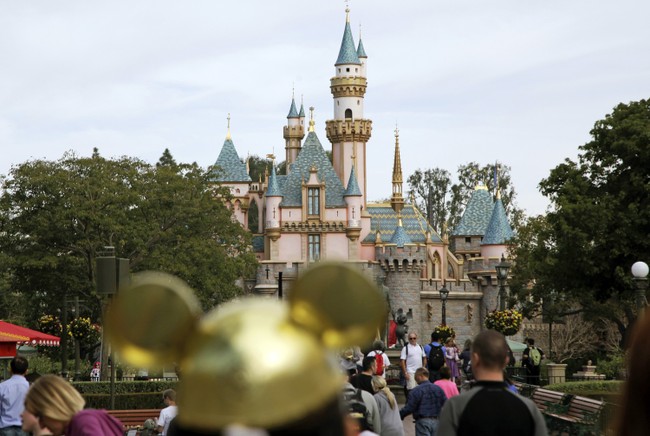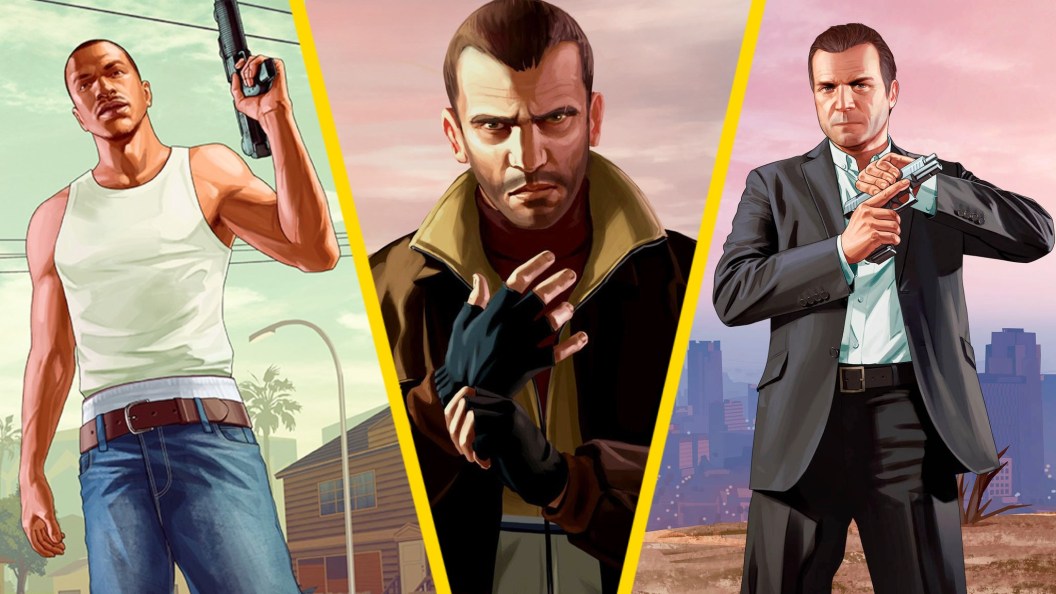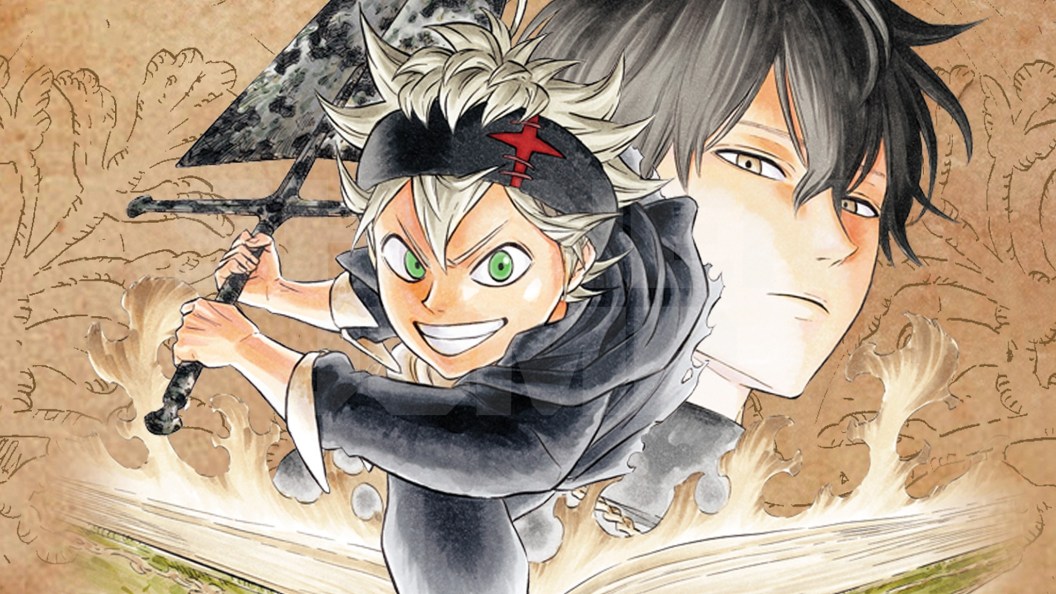[Warning: The following contains MAJOR spoilers for the Wolf Hall : The Mirror and the Light series finale.] Hilary Mantel’s Wolf Hall book trilogy puts historical figure Thomas Cromwell into a more favorable spotlight. The Tudor-era figure is known for masterminding the separation of the Church of England from Rome and playing a major role in the English Reformation era.
But even his close bond with King Henry VIII couldn’t save Cromwell from the same fate that befell two of Henry’s wives. The series finale of Wolf Hall: The Mirror and the Light started with a Cromwell and Anne Boleyn parallel and ended with the former’s demise. Despite all his knowledge of Henry ( Damian Lewis ), Mark Rylance ‘s Cromwell held out hope that Henry would change his mind about his execution, just like Anne ( Claire Foy ) did in the Wolf Hall 2015 finale that was recreated in The Mirror and the Light ‘s first episode .

This intentionally drew a connection between Cromwell and Henry’s doomed second wife, foreshadowing how the series would end. The Mirror and the Light opened its first episode with a shot of Cromwell and the arrested Boleyn in a boat on its way to the Tower of London, where the queen would live out the rest of her days before her beheading. The finale recreated that same shot on the river, only this time with Cromwell as the incarcerated passenger.
“Cromwell was very conflicted when he took Anne Boleyn to the tower at the end of the finale episode of the first series of Wolf Hall . He felt it was a real waste,” director and showrunner Peter Kosminsky tells TV Insider. “She was an incredibly talented person who saw eye to eye with him politically in so many ways.
But King Henry VIII had made it clear to him that it was him or her...
So that seat in that boat, the seat that Anne Boleyn occupied heading for the tower, felt to Cromwell like he was just inches away from being in that seat himself. And here we are four years later at the start of the final episode of the second and final series, where Cromwell does indeed find himself in that seat in the boat. So I tried to recreate it so it looked almost identical to the shot that we had used for Anne in that first series 10 years ago, just so that the parallel for the audience and the uncomfortable parallel for Cromwell himself would be at its most acute.
” It’s a tragic parallel, as Cromwell let Boleyn die for his own sake and made more difficult decisions in the years that followed only to wind up in the same spot anyway. In the eyes of Henry and Cromwell’s critics, the figure had become “too powerful,” Damian Lewis explains to TV Insider. “He flies too close to the sun, Cromwell, in the end.
” He stood accused of enriching and arming himself against the king and trying to arrange a marriage between himself and Lady Mary ( Lilit Lesser ). This was just the perception of Cromwell’s actions and not his intent, as he tried to explain in a gripping 15-minute interrogation scene in the finale. But perception was all that mattered.
The series ended with Cromwell’s execution. Just before the blade made contact, the scene switched to a more peaceful sight: the garden of the home at which Cromwell had hoped to live out his retirement. Kosminsky explains the decision to end the series here with no resolution following Cromwell’s execution.
“It would’ve been very tempting to see what happened afterwards,” Kosminsky says. “And I did allow the audience to just glimpse a couple of little moments by visiting some of the characters as Cromwell is walking to the scaffold. But the whole show, all 12 episodes, is built on the idea that we see everything from Cromwell’s point of view.
The camera never precedes him into a room. It always enters the room with him tracking in on his shoulder normally. It’s a point of view and reaction-style of shooting — on his shoulder, seeing his point of view, and cutting back to his face for reaction.
The audience never has the advantage of Cromwell. It never learns something that he doesn’t know. It only learns what he knows.
When he’s in the dark, the audience is in the dark trying to guess what’s going on in the same way he is. So obviously, if the whole thing is told from his point of view, then when his head comes off, that’s the end of the story.” Cromwell didn’t go down without a fight.
The climax of the finale was the interrogation scene featuring Rylance, Timothy Spall ‘s Duke of Norfolk, Alex Jennings ‘ Stephen Gardiner, Tom Mothersdale’s Richard Rich, and Harry Melling ‘s Thomas Wriothesley. Cromwell entered this battle of wits assuming he would be exonerated in the end. As time went on, he slowly realized his time was up.
Henry’s refusal to see Cromwell in person, paired with a lack of action in response to his letter begging for mercy, made clear that Cromwell was a dead man. Kosminsky says the interrogation scene “was about 25 pages of script” filmed in just two days. They originally carved out three days to film this climactic scene, but an illness among the cast forced them to cut that time down, “which meant that on one day, all those actors sitting around that table needed to run unbroken probably eight or 10 times, about 16 pages of dialogue and complicated dialogue with pace and attack and interrogation,” Kosminsky reveals.
There was no reshooting for the first 16 pages on day two. The interrogation scene is meant to depict Cromwell’s descent from the steely figure with an endless supply of bite into a man accepting defeat. “What I really like about the scene is, you see how far Thomas has traveled from when we first met him,” Peter Straughan, the Oscar-winning screenwriter of Conclave who wrote every single Wolf Hall episode, tells TV Insider.
“Because he was always fast on his feet. He was always clever and he could always out-talk and out-dance anyone else. And he still can really, in that scene.
You know that he can. Every time they throw an accusation at him, he can turn it around and flip it back. But there’s also this sort of weariness, almost bordering on despair that creeps in.
” “Peter [Kosminsky] and I talked about this. I always felt in the end that it’s Cromwell that decides that Cromwell won’t go any further rather than the world,” Straughan adds. “One of my favorite moments in the last episode is when he says, he sort of breaks off the argument and says, oh my God, what are you going to do when I’m not here anymore? What’s going to happen to Britain when I’m not here anymore? When it’s just you and the French will use you? They’ll know how to manipulate you.
I just love that moment. He’s looking ahead, and he’s not so much worried about saving his own life at that point. He’s thinking about all the work he’s done being undone by these idiots who he already knows in a way are going to have victory over him.
” Like Kosminsky, Straughan sees a parallel between Cromwell and Boleyn in this interrogation. Cromwell beginning this scene with the belief he’ll survive is like Boleyn “looking back over her shoulder as she walks to the scaffold,” as seen in the Wolf Hall finale and The Mirror and the Light ‘s opening scene. “Cromwell says it’s because she still thinks even now that he might come and save her,” Straughan explains, and there’s “a little bit of Cromwell” who hopes the same for himself.
“I don’t know why, but he does kind of love Henry. He keeps thinking, ‘If I can just get to him, even if I can just get my words to him, I can stop this,’ because he’s sentimental in a way, Henry. And also [Henry] values loyalty even though he cuts people off.
” According to Straughan, Cromwell knew hope was lost when “Rafe [ Thomas Brodie-Sangster ] reads the letter to Henry and Henry says, ‘No, don’t repeat it again.’ Cromwell thinks, ‘Well, if I can’t reach him, I can’t stop this.'” Cromwell is one of Henry’s closest confidantes up until the disastrous failure of a marriage to Anne of Cleves (Dana Herfurth), which Cromwell arranged.
Lewis says that “like all powerful people, they like having someone around them that speaks truth to that power until they don’t like it anymore. And that’s when they’re at their most dangerous. He has loved Cromwell.
..He’s really the only person who actually speaks directly to Henry and is prepared to contradict him.
So there is a respect and a love there.” Then why couldn’t Henry show his friend mercy? More Headlines:.
Entertainment

‘Wolf Hall’ Team Explains Cromwell’s Ending, Anne Boleyn Parallels & Why Henry Cried

Damian Lewis and creators break down the series finale, including a 25-page scene the director calls the 'most impressive thing' he's 'ever seen in 45 years of program making.'















